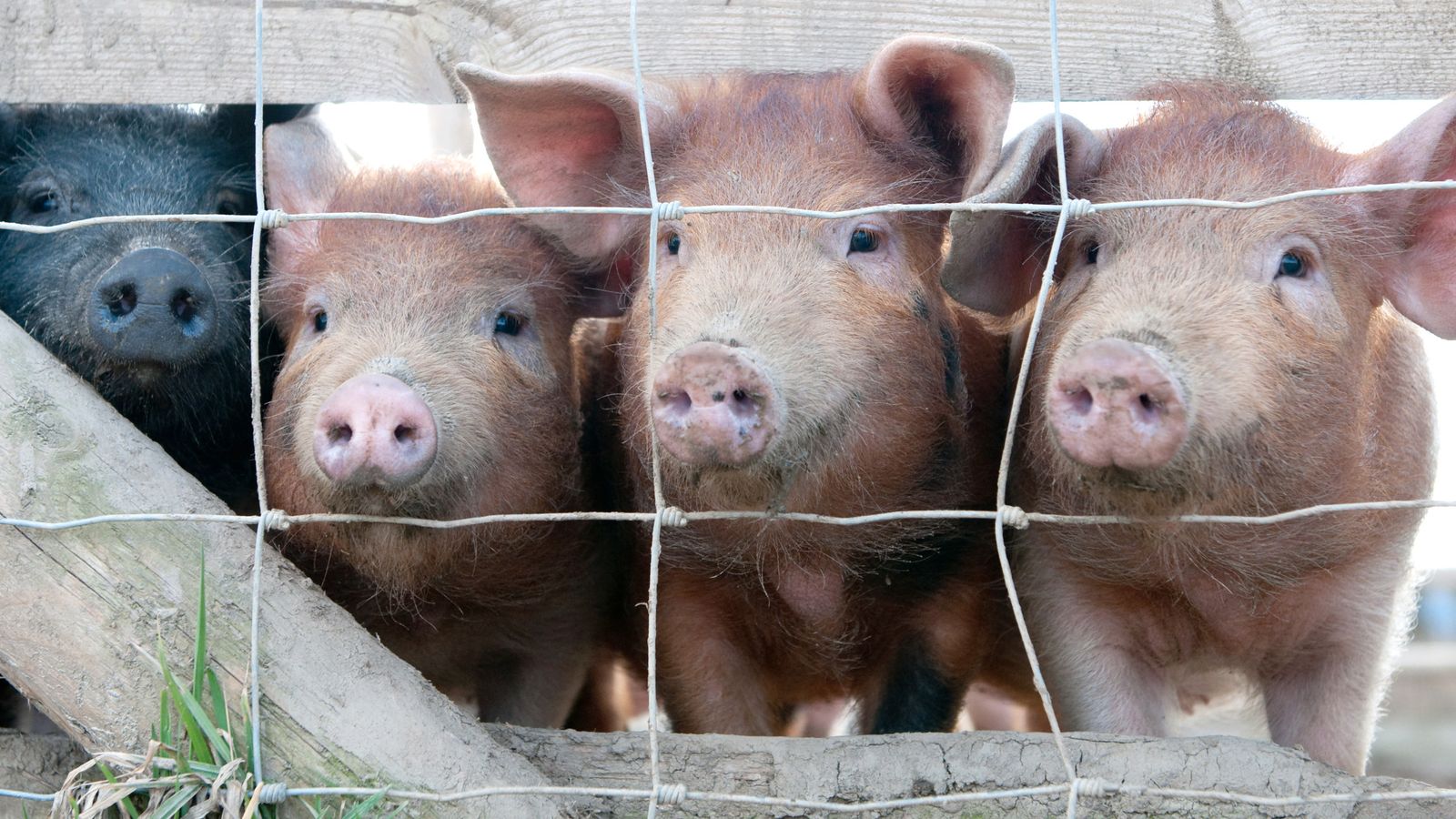New strain of swine flu detected in person for first time in UK

A new strain of swine flu – similar to a flu virus currently circulating in pigs – has been detected in a human in the UK for the first time.
The person was diagnosed with the infection – influenza A(H1N2)v – as part of routine national flu surveillance after visiting their GP in North Yorkshire with breathing problems, it is understood.
The person involved is not known to have worked with pigs and has fully recovered.
The source of the infection is still unknown and under investigation.
The UK Health Security Agency (UKHSA) said it is monitoring the situation closely and is taking steps to increase surveillance within existing programmes involving GP surgeries and hospitals.
There have been a total of 50 human cases of influenza A(H1N2)v reported globally since 2005; but none of them are related genetically to this strain.
H1N1, H1N2 and H3N2 are major subtypes of swine flu A viruses in pigs and occasionally infect humans.
Based on early information, the UKHSA said the strain detected in the UK differs from recent human cases of H1N2 elsewhere in the world, but is similar to viruses in UK pigs.
A person in North Yorkshire has been diagnosed with a strain of flu similar to a virus circulating in pigs.
As this is the first time the virus has been detected in humans in the UK – there are a number of questions the public will want the answers to.
Is this swine flu? Bird flu? Both?
Have there been cases in other parts of the world?
What do we know about the first case?
Meera Chand, incident director at UKHSA, said: “This is the first time we have detected this virus in humans in the UK, though it is very similar to viruses that have been detected in pigs.”
Advertisement
Chief veterinary officer, Christine Middlemiss, said: “We know that some diseases of animals can be transferred to humans, which is why high standards of animal health, welfare and biosecurity are so important.
“Through our animal and human surveillance systems we work together to protect everyone.
“In this case we are providing specialist veterinary and scientific knowledge to support the UKHSA investigation.”
Every time a virus jumps from animals into humans there is a shudder of alarm.
So-called zoonotic diseases have resulted in pandemics in the past, most recently of course COVID.
That’s why the UK Health Security Agency is trying to work out how someone in Yorkshire has been infected with a strain of flu so similar to a virus circulating in pigs in the UK.
We don’t know much about the individual. But we do know they only had mild symptoms and fully recovered. And they didn’t work with pigs. That’s the puzzle.
Does it mean that the virus is circulating in people, undetected until now? Health authorities are tracing contacts of the infected person and are trying to identify the source.
Flu normally crosses the species barrier by infecting people in close contact with animals. That’s why people who work with chickens are checked for bird flu, which is caused by another strain of the virus.
But even if there is a human case of an animal virus that’s usually the end of the story. The virus isn’t passed on because it’s not well enough adapted to human cells to spread from person to person.
Officially, there is no evidence of human transmission of the new swine flu virus. But it’s hard to see an alternative explanation at the moment.
That doesn’t mean we are on the verge of a new pandemic. The strain could disappear as quickly as it emerged.
But scientists will want to understand more about the virus to gauge how transmissible it is – and also to be sure it’s not more of a risk to people who are vulnerable, either because of age or underlying health conditions.
Pig-keepers have been urged to report any suspicion of swine flu in their herds to their local vet immediately.
It is not known at this stage how transmissible the strain is or if there could be other cases in the UK.
It is also too early to say if the strain could have pandemic potential.
The UKHSA has notified the World Health Organisation (WHO) of the latest case.
In 2009, there was a pandemic in humans caused by flu strain H1N1, commonly referred to as swine flu.
This now circulates in humans seasonally.